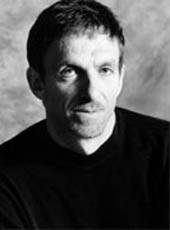Interview with Mychael Danna (composer)

Mr. Danna was so kind as to respond to some interview questions that I asked of his experience scoring the music for "Nativity." His thoughtful replies follow:
How did scoring this film differ—if at all—from other movies that you have composed for?
I think it certainly has more meaning to me personally just because my earliest memory is sitting in church listening to my dad sing Handel’s “Messiah.” It goes back to my very beginning where I became affected by music written for the Nativity.
How did scoring this film differ—if at all—from other movies that you have composed for?
I think it certainly has more meaning to me personally just because my earliest memory is sitting in church listening to my dad sing Handel’s “Messiah.” It goes back to my very beginning where I became affected by music written for the Nativity.
That said, the work on the film is exactly as any other film. It’s the emotional meaning to me that is higher than usual because it goes back so far.
What helped you with your decisions for instruments to use and was there any influence from ancient musical melodies or instruments for your score?
That’s a good question. I did a lot of research on music of Judea and Palistine at the time. I learned a lot and then decided not to use any of it. The reason for that is I find that ever since Peter Gabriel’s work for “The Last Temptation of Christ” composers have all approached the same era and subject matter with the exact same things. We hear all the same instruments and the same vaguely Middle Eastern sound. The fact is, nobody really knows what the music of that time was. The second temple was destroyed by the Romans around 70 AD and at that point, all of the music of the Jews was pretty much destroyed. Also, out of mourning they banned music from their synagogues from that point on. So nobody knows anything -- other than a few vague images in the Bible – what was going on musically at that time. Every film score that is written for that area uses the duduk, which is an Armenian instrument and probably has nothing to do with that area. They use Egyptian and Moroccan music. I’m kind of tired of that approach. I think it’s time for something fresh.
The other thing is that I think this story has its big resonance not in the Middle East. It’s not really a story about the Jews. It’s really a story about Christians and about Europe and about the incredibly profound event. The meaning of this event really resonated through the entire civilization of the West. This event this meant so much and affected every moment in life in a civilization was in Medieval Europe, the Middle Ages and Renaissance Europe. So that’s where I’ve gone to for the inspiration for the music.
I’m using early European instruments from the 12th-14th centuries. I’m using a lot of melodies from the early Christian church: plain chant, Gregorian chant. I’m also using some very early Christmas melodies, for instance “O Come, O Come, Emmanuel,” which is a very ancient melody. I’m using other tunes like “Of the Father’s Love Begotten,” which goes back to the late Roman Empire when the empire became Christian from about the year 400. I’ve been using melodies from before 1600, or something like that.
It’s a story of Europe and a story about the west and Western Civilization. That’s really been the inspiration.
What was the most fun and the most frustrating about scoring this movie?
It’s been really fun to work with melodies that I’ve known all my life like “O Come, O Come Emmanuel” which is just a fantastic melody. It’s fun to work with those things that have so much emotional power for me personally. That’s really been the most fun is to rediscover and redeploy those melodies and to be able to tell this story again. It’s been told countless times, but to be able to tell it again in a film setting using my expertise in film scoring has really been fun. To be honest, it hasn’t been frustrating. All I can think of are the fun parts.
Did you have any personal interest that attracted you to score this film?
I’ve known these melodies all my life and I’ve sung them since I was a little kid. I’ve sung in choirs right from the time I was 7 or 8. The other fun thing is that I used to be a church choir director and an organist. Sometimes I get flashbacks when I’m working on this.
What do you want your music to get across as the enhancement of the visuals?
Just to help to show the resonance. On screen, we’re seeing a young girl in Judea in a tiny village riding on a donkey. That’s what’s on screen, but what that means to us as people who have grown up with that imagery and grown up with that icon, it’s such a powerful thing to us. On screen, there’s nothing particularly special about it but emotionally it means so much. That’s the thing the music can say. That’s been the fun of the music, to remind people to look at this little girl riding this donkey. This is something that’s going to have connotations for thousands of years.
Did you audition to compose the score or were you approached by the producers specifically? If it's the latter, then why do you think you were approached?
Ironically, I think I was approached because of my expertise with ethnic instruments. Most of the scores that have handled this material in the last 10-15 years have all approached it with ethnic instruments and kind of made an ethnic soup of all kinds of different things. I think I was approached because I am sort of an expert in that myself. Ironically, that’s not the approach I’m taking.
Do you have any other comments that you would like to make about your experience with composing for this movie?
I’m not finished yet. I still in the middle of it and there’s still lots of excitement yet to come.





5 Comments:
Wow - what an excellent interview! I never thought about the loss of the Jewish musical culture after the fall of the temple like that. I think he's right in that there is a prevalent miss-association with music that is probably more Arabic or Persian. It's a bit ironic, really, that Hollywood would use the music of the Arabs to commemorate events in Jewish history.
that's a really cool interview...thanks for asking the questions and sharing the info here...I love it!!!
--RC of strangeculture.blogspot.com
Thank you! It's my pleasure to bring it to you, and I'm glad you're enjoying it.
Great interview Spoo. Thnaks for going to the trouble to dig it out.
Matt
Thanks, Matt. No problem!
Post a Comment
<< Home